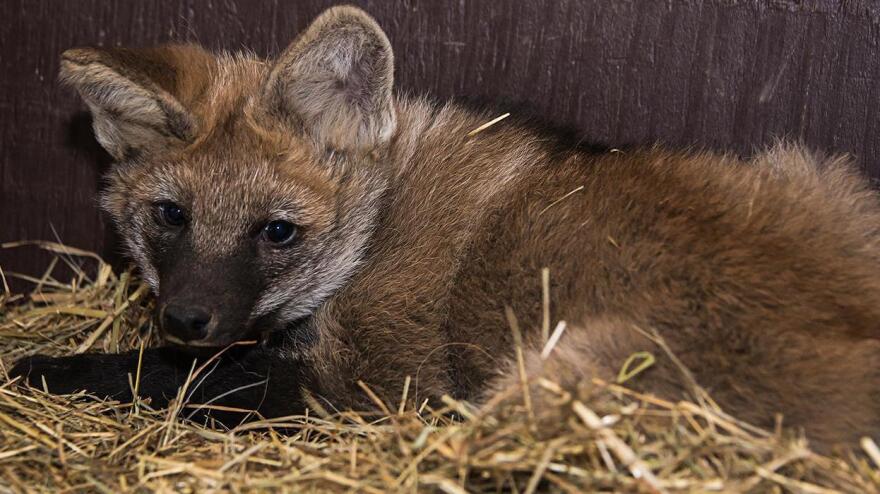Watch the video here.
The maned wolf is a weird-looking beast.

Its huge ears and lanky black legs have earned it the nick name "fox on stilts". But the maned wolf is neither fox nor wolf. It is a distinct species in the Canidae family.
The wolves live in a vast tropical savanna in South America called the Cerrado, which boasts extraordinary diversity of plants and animals. But that habitat is disappearing due to rapid expansion of agriculture.
According to Smithsonian scientist Nucharin Songsasen, this large-scale habitat loss threatens the future of the maned wolf species. "Eighty percent of these grassland already disappeared. And only five percent of that natural habitat that's remaining is protected."

So Songsasen is leading a team at the Smithsonian Conservation Biology Institute that is attempting to breed an insurance population of maned wolves. Basically, a backup population of captive maned wolves in case the animals become extinct in the wild.
In order to play matchmaker for the maned wolves, Songsasen works with scientists all over the country to build a genetic database of the wolves currently in captivity. Each wolf is given a genetic value that corresponds with how related they are to other wolves. The less related two wolves are, the better suited they are as potential mates. That's because genetic diversity helps a population survive.
Songsasen uses these genetic values as well as the health, age, and location of the wolves to make a match. But mating wolves isn't as simple as putting two of them together. "They only have two to three days that they will breed a year," says Songsasen.
Because the wolves mate so infrequently, Songsasen is working on developing reproductive tools to breed the wolves. Songsasen and her colleague Jennifer Nagashima worked with Cornell University to perform the first successful in-vitro fertilization in domestic dogs. Now, they are trying to adapt IVF for the maned wolf.
Until then, they'll continue to match up wolves and hope for pups the old-fashioned way.
Copyright 2021 NPR. To see more, visit https://www.npr.org.





